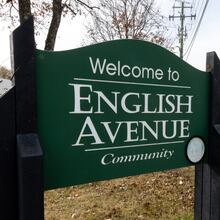In the past five years, we have seen a dramatic evaporation of real estate equity in this country. Home values across the nation dropped precipitously, and fortunes have been lost. Many Americans saw their retirement nest egg lose much of its value.
Those most affected may be buyers who purchased in the few years immediately prior to the bubble bursting, and watched helplessly as their home value fell well below their loan balance.
Home values in metro Atlanta began to dip in the first quarter of 2008 and failed to post a quarterly gain until the first quarter of this year.
Unfortunately, many lost their homes in a flood of foreclosures. The public appropriately demanded government do something, and in a whirlwind of publicity our leaders announced a series of ham-handed programs that often excluded those most in need of help.
HASP, HAMP, HARP and HAFA were perhaps well-intended. But they failed in the mission of assisting homeowners who wanted to stay in their homes and could afford to pay a reasonable amount to their lender every month. In addition, these programs were so confusing that lenders often chose to not participate because they did not understand the provisions.
While lenders promised modifications and workouts, most borrowers got a never-ending runaround that ended in loss of their home at a foreclosure auction. Believe it or not, this is still happening in Georgia and beyond.
The vast majority of these foreclosures devastated the families involved as well as neighborhood home values.
Last year, attorneys general from 49 states reached a $25 billion settlement that promised to end abusive servicing practices such as dual-tracking, in which the homeowner is encouraged to apply for a loan modification even as the foreclosure process continues. That agreement, which included only Bank of America, JPMorgan Chase, Wells Fargo, Citigroup and Ally Financial, didn’t apply to all loans they serviced.
Georgia’s share of the settlement totalled just shy of $100 million and was supposed to be used for housing relief. But Attorney General Sam Olens and Governor Nathan Deal decided that rural development was a better idea, and the funds were diverted.
Now we are beginning to see the volume of foreclosures slowing, and the sluggish economy may be starting to recover. Slowly now, and hopefully faster soon.
Some have written to me suggesting real estate can (and should) now be labelled as a risky investment not worthy of a family’s dedication and financial resources. They point to the past five years. But the past five years was not the fault of the real estate.
Since 2008, we’ve gone through a reality check caused by a departure from traditional loan guidelines.
The truth is that we let people borrow money who shouldn’t have been buying a home in the first place.
The problems we have experienced in real estate over the past five years are the fault of the system that failed the people.
In full disclosure, I have made a living for the past 30 years buying and selling real estate. But the bottom line here is this: We have around 316 million people living in this great nation of ours, and most of them prefer to live indoors.
Today is a great time to buy residential real estate, especially if you plan to live in it and become a part of the neighborhood and community.
For more information on buying a home, visit my website at money99.com and download the free Home Buyers Guide.
About the Author




